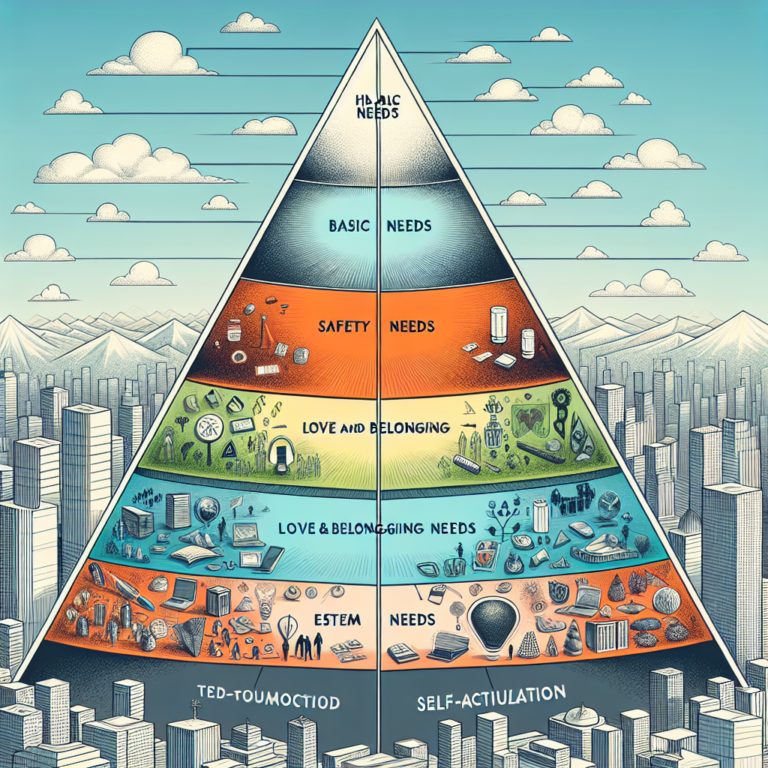
Beyond Therapy: Ultimate Careers for Psychology Majors
Introduction
Have you ever felt that a psychology degree is synonymous with a future in therapy? If so, you’re not alone. Many individuals assume that a B.A. or B.S. in psychology automatically locks the door to a single career path—therapy. However, this assumption overlooks the vast array of opportunities available to psychology majors. The truth is that psychology offers a fertile ground for diverse career paths, from business to education, and beyond. In this article, we will explore the myriad possibilities available to psychology graduates and illustrate just how multifaceted the field really is. Join us as we journey beyond therapy: diverse careers for psychology majors.
The Broad Scope of Psychology
Psychology is not just about understanding the mind; it’s about understanding human behavior. By studying psychology, graduates gain essential skills such as critical thinking, problem-solving, and effective communication. These competencies can be utilized in numerous sectors, making psychology graduates some of the most versatile professionals in today’s job market.
Skills Acquired in a Psychology Degree
| Skills | Description |
|---|---|
| Analytical thinking | Ability to analyze information and draw conclusions. |
| Communication skills | Proficient in conveying information effectively. |
| Research methods | Familiarity with empirical research and statistics. |
| Empathy and ethics | Understanding diverse perspectives and ethical implications. |
| Teamwork | Collaborating efficiently with people from various backgrounds. |
The abilities cultivated through a psychology education contribute to a rich toolkit that students can apply in many domains—far exceeding the trope of therapeutic roles.
Diverse Careers Beyond Therapy
Let’s delve into specific career options that fall beyond therapy: diverse careers for psychology majors.
1. Human Resources Specialist
Overview:
Human Resources (HR) professionals act as a bridge between management and employees. Their duties range from recruitment to employee relations, training, and compliance.
How Psychology Applies:
Psychology graduates excel in HR due to their understanding of human behavior. This knowledge aids in creating a productive and harmonious workplace environment.
Case Study:
Sarah’s Story:
After obtaining her degree in psychology, Sarah started her career as an HR specialist at a tech company. By integrating psychological principles into her training programs, she significantly improved team dynamics, leading to a 25% increase in employee satisfaction ratings in just one year.
2. Market Research Analyst
Overview:
Market Research Analysts study market conditions to examine potential sales of a product or service. They help companies understand what products people want, who will buy them, and at what price.
How Psychology Applies:
Psychology provides insights into consumer behavior. Graduates analyze demographic data and conduct surveys to inform marketing strategies.
Case Study:
David’s Challenge:
David began his career as a market research analyst after college. By applying psychological theories of decision-making and motivation, he helped his company increase product launch success rates by over 30%.
3. Social Worker
Overview:
Social workers help people manage the challenges and crises they face in their lives. They work in healthcare, schools, and community settings.
How Psychology Applies:
The foundational theories in psychology equip social workers to assess clients, provide therapy, and connect them with resources.
Case Study:
Laura’s Impact:
After receiving her psychology degree, Laura became a clinical social worker. Her empathetic approach and understanding of psychological principles led to successful interventions for numerous families grappling with mental health issues.
4. Educational Psychologist
Overview:
Educational psychologists focus on how people learn and develop. They are often involved in designing educational programs and interventions.
How Psychology Applies:
Graduates use psychological principles to enhance learning outcomes and support various learning needs.
Case Study:
Tom’s Contribution:
Tom utilized his background in psychology to develop inclusive educational programs in local schools. His efforts led to a 40% increase in test scores for underperforming students.
5. Organizational Consultant
Overview:
Organizational consultants analyze workplace dynamics to improve productivity and employee satisfaction.
How Psychology Applies:
A background in psychology equips graduates to diagnose issues within teams and recommend strategies for improvement.
Case Study:
Emily’s Strategy:
As an organizational consultant, Emily applied evidence-based strategies from psychology to foster collaboration within corporate teams, resulting in a 15% boost in project completion rates.
6. Criminal Profiler
Overview:
Criminal profilers collaborate with law enforcement to identify potential suspects in criminal cases.
How Psychology Applies:
Psychological assessment and behavior analysis are critical skills in predicting criminal behavior and understanding the motivations behind it.
Case Study:
Mark’s Insight:
Once receiving his psychology degree, Mark trained to become a criminal profiler. His psychological insights assisted law enforcement in solving high-profile cases, enhancing community safety.
7. Non-Profit Program Coordinator
Overview:
Program coordinators within non-profit organizations develop and manage programs that address societal needs.
How Psychology Applies:
A psychology degree supports an understanding of community issues and the psychological factors influencing social behavior.
Case Study:
Jessica’s Commitment:
Jessica started as a program coordinator for a local nonprofit focused on mental health. By applying psychology principles, she designed initiatives that improved community engagement by 50%.
8. Sports Psychologist
Overview:
Sports psychologists focus on the mental and emotional aspects of athletic performance.
How Psychology Applies:
Understanding the psychological factors that influence performance helps athletes cope with pressure and enhance their mental resilience.
Case Study:
Kevin’s Journey:
Kevin, a sports psychologist, helped an underperforming college team increase their performance by focusing on mental conditioning strategies, achieving a championship title.
Additional Opportunities
While we’ve highlighted some of the most straightforward paths, it’s important to remember that a degree in psychology provides a significant advantage in many fields, such as:
- Public Policy Analyst: Influencing policies through research on human behavior.
- Content Strategist: Utilizing psychological insights to design compelling communications.
- Health Educator: Promoting wellness through understanding health psychology.
- Corporate Trainer: Leveraging understanding of adult learning processes to improve employee training.
Why Choose a Career Path Beyond Therapy?
Exploring the career options beyond therapy: diverse careers for psychology majors opens doors to various industries crucial to society. Choosing these pathways can enhance job satisfaction, increase salary potential, and allow you to impact many lives positively.
Benefits of Diverse Career Paths
- Flexibility: Many psychology-related careers offer flexible work environments allowing for a better work-life balance.
- Stability: Fields such as HR and market research exhibit a growing demand for qualified professionals.
- Continuous Learning: Spiraling growth in psychology applications invites opportunities for continual education and specialization.
Conclusion
In a world where understanding human behavior is vital in every sector, psychology majors can find careers that transcend the traditional therapeutic path. By leveraging their unique skills and insights, graduates can venture into multifaceted roles that provide personal fulfillment and professional success. The field of psychology is not limited to therapy; it offers invaluable opportunities to shape businesses, influence communities, and inspire individuals.
So, if you are contemplating your future with a psychology degree, remember to think beyond therapy: diverse careers for psychology majors. You’re equipped with the knowledge and skills to make a significant impact in numerous fields. Let curiosity be your guide, explore these diverse options, and prepare to embark on a rewarding career journey!
FAQs
1. Can I use a psychology degree in business?
Absolutely! Psychology majors are equipped with an understanding of human behavior that is invaluable in the corporate world. Roles in HR, market research, and organizational development are just a few examples where psychology graduates can excel.
2. Is a graduate degree necessary for these career paths?
While some roles, such as educational psychologist or criminal profiler, may require further education, many positions—like HR specialist or market research analyst—can be achieved with only an undergraduate degree.
3. How can I find internships related to psychology?
Look for opportunities on job boards, university career services, or professional organizations in psychology. Networking through events and social media can also yield beneficial connections.
4. What industries actively seek psychology graduates?
Psychology graduates can find opportunities in industries like education, healthcare, corporate settings, non-profits, and government sectors, among others.
5. Do I have to limit myself to one career choice?
Not at all! Many psychology graduates pursue diverse careers throughout their lives, switching paths as interests and opportunities evolve. Flexibility is one of the key benefits of having a psychology degree.
In conclusion, a psychology degree opens endless possibilities that extend far beyond traditional mental health professions. By embracing the diversity of these opportunities, you can craft a fulfilling career that resonates with your passions and strengths.

















